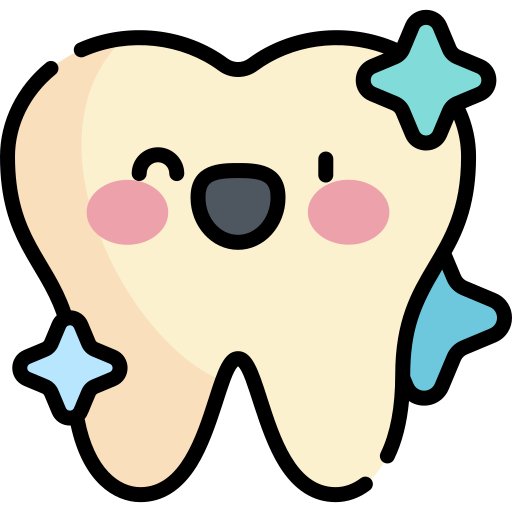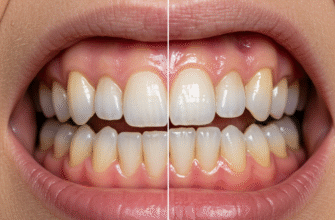Everyone wants a dazzling smile, right? And while brushing and flossing are champions, what you munch on plays a huge supporting role. It’s like a behind-the-scenes director for your mouth’s well-being. Think of your diet as the fuel not just for your body, but specifically for keeping those pearly whites strong and healthy. The connection is deeper than just avoiding sweets before bedtime; it’s about a consistent, thoughtful approach to what passes your lips every day, influencing everything from the strength of your enamel to the health of your gums.
The Usual Suspects: Foods That Test Your Teeth
Let’s get the obvious out of the way: sugar. It’s not the sugar itself that directly drills holes in your teeth, but it’s the favorite food of certain bacteria living in your mouth. When these tiny critters feast on sugar, they produce acids. These acids are the real troublemakers, attacking your tooth enamel, which is the hard, protective outer layer of your teeth. The more sugar you consume, and the more often you do it, the more acid attacks your teeth have to endure. Think of sugary drinks, candies, pastries, and even seemingly innocent things like sweetened yogurts or breakfast cereals which can prolong sugar exposure.
Sneaky starches are another group to watch. Things like potato chips, white bread, pasta, and crackers might not taste overtly sweet, but they break down into simple sugars right in your mouth. What makes them particularly tricky is their tendency to get stuck in the nooks and crannies of your teeth, especially between them. This gives those acid-producing bacteria a prolonged feast, meaning more time for acid to work its damaging magic on your enamel. So, that bag of crisps you snack on throughout the afternoon can be just as challenging for your teeth as a candy bar, often lingering longer.
Some foods and drinks are acidic all on their own, meaning they can start eroding your enamel directly, without needing bacteria as middlemen. Citrus fruits like lemons and oranges, tomatoes, pickles, and fizzy drinks (even the sugar-free ones due to carbonic acid and other acidulants) fall into this category. While many acidic foods offer nutritional benefits, it’s about how and how often you consume them. Constant sipping of acidic beverages, for example, bathes your teeth in an erosive solution for extended periods, weakening the enamel over time.
Dental Champions: Foods That Fortify Your Smile
Now for the good guys. Calcium is a superstar for dental health, and for good reason. It’s a primary building block for strong bones and teeth, helping to reharden and strengthen enamel that might have been demineralized by acids. Dairy products like milk, cheese, and plain yogurt are fantastic sources. Cheese, in particular, is interesting because it can also stimulate saliva flow, which helps neutralize acids. If dairy isn’t your thing, don’t worry! Leafy green vegetables like kale and spinach, canned fish with bones (like sardines), almonds, and fortified plant-based milks can also provide a good dose of calcium.
Phosphorus is calcium’s trusty sidekick. Your body needs phosphorus to properly absorb and utilize calcium for building strong teeth and bones. It’s an essential mineral that works in tandem with calcium to maximize bone and tooth density. You can find this vital mineral in protein-rich foods such as eggs, fish, lean meats, poultry, dairy, and nuts. A balanced diet usually provides enough phosphorus, working in harmony with calcium to keep your enamel resilient and well-maintained.
Mother Nature has her own toothbrushes! Crunchy, firm fruits and vegetables like apples, carrots, and celery are excellent for your teeth. Their high fiber content means they require a good amount of chewing. This chewing action stimulates saliva production, which is your mouth’s natural defense mechanism. Saliva helps to wash away food particles, neutralize harmful acids, and even contains minerals that help repair early tooth damage. Plus, the abrasive texture of these foods can gently scrub tooth surfaces as you eat them, offering a light cleaning effect.
Healthy gums are the foundation for healthy teeth. Vitamin C plays a crucial role in maintaining the health of your gums and the connective tissues in your mouth. It helps in the production of collagen, a protein that keeps your gums firm and resilient against bacteria, and aids in the healing process. You can load up on Vitamin C from citrus fruits (enjoyed in moderation due to their acidity), bell peppers, strawberries, broccoli, and kiwis. Strong gums help hold your teeth securely in place and are less prone to inflammation.
It’s Not Just What, But How: Eating Habits Matter
Imagine your teeth are constantly under siege. Every time you eat or drink something sugary or starchy, the bacteria in your mouth produce acids, leading to an “acid attack” that can last for about 20 minutes or more. If you’re snacking frequently throughout the day, your teeth don’t get a break from these attacks. They are continuously bathed in acid, giving saliva little chance to neutralize it and repair the enamel. Limiting snacking, especially on sugary or starchy items, can make a huge difference to your oral environment.
Similarly, slowly sipping on sugary or acidic drinks – like soda, sweetened coffee or tea, or fruit juice – over a long period is particularly damaging. Each sip restarts the acid attack, prolonging the time your enamel is vulnerable. It’s far better for your teeth to consume such drinks with a meal and relatively quickly, rather than prolonging the exposure throughout the day. If you do enjoy these beverages, consider drinking them through a straw to minimize contact with your teeth, and follow up with a water rinse.
The Unsung Hero: Wonderful Water
Never underestimate the power of plain water! It’s truly your mouth’s best friend. Drinking water, especially after meals or snacks, helps to rinse away food particles and dilute sugars and acids that can cling to teeth. It also keeps you hydrated, which is essential for saliva production. Saliva, as we’ve learned, is critical for neutralizing acids and remineralizing enamel. If your tap water is fluoridated, that’s an added bonus, as fluoride is a mineral that helps strengthen tooth enamel and make it more resistant to decay. Making water your primary beverage is a simple yet powerful step for dental wellness.
Important Reminder: Frequent exposure to sugars and starches is a primary driver of tooth decay. Each time you consume these items, bacteria produce acids that attack your tooth enamel for at least 20 minutes. Reducing the frequency of these exposures gives your saliva a chance to neutralize acids and repair early damage to the tooth surface.
Making Diet Work For Your Dental Health
Being mindful of your food choices doesn’t mean you have to give up everything you love. It’s about balance and making smarter swaps. Read food labels to identify hidden sugars in processed foods, sauces, and drinks, as they can be surprisingly high. Opt for whole, unprocessed foods whenever possible, as they are generally less likely to contain added sugars and more likely to offer beneficial nutrients. When you do indulge in a sweet treat, try to have it as part of a meal rather than as a standalone snack. This is because saliva production is generally higher during meals, which can help buffer the acids and clear sugars more efficiently.
Certain food combinations can also be beneficial. For instance, finishing a meal with a piece of cheese can help neutralize plaque acids and stimulate saliva. Eating sugary foods less often is key. If you do have a sugary snack, try to follow it up by rinsing your mouth with water or chewing sugar-free gum (especially one with xylitol) to stimulate saliva flow and help clear away residual sugars and acids. These small adjustments can significantly impact your oral environment.
Ultimately, moderation is the golden rule. You don’t need to banish all enjoyable foods, but being aware of their potential impact on your teeth and consuming them thoughtfully makes a significant difference. A balanced diet rich in vitamins, minerals, and whole foods supports not only your overall health but specifically contributes to strong teeth and healthy gums. It’s about creating a dietary pattern that nourishes your body from the inside out, including your smile.
The Bigger Picture for a Brighter Smile
Remember, diet is a powerful piece of the puzzle, but it works best in tandem with good oral hygiene practices. Brushing twice a day with fluoride toothpaste for two minutes, flossing daily to clean between teeth where your brush can’t reach, and regular dental check-ups and cleanings are all essential components of maintaining excellent oral health. Your dietary choices complement these efforts, creating a comprehensive strategy for a healthy, happy smile for years to come. It’s about fostering an environment in your mouth where teeth can thrive, rather than constantly battling against harmful elements introduced through less mindful eating and drinking habits. Taking this holistic approach is your best bet for lifelong dental well-being.








